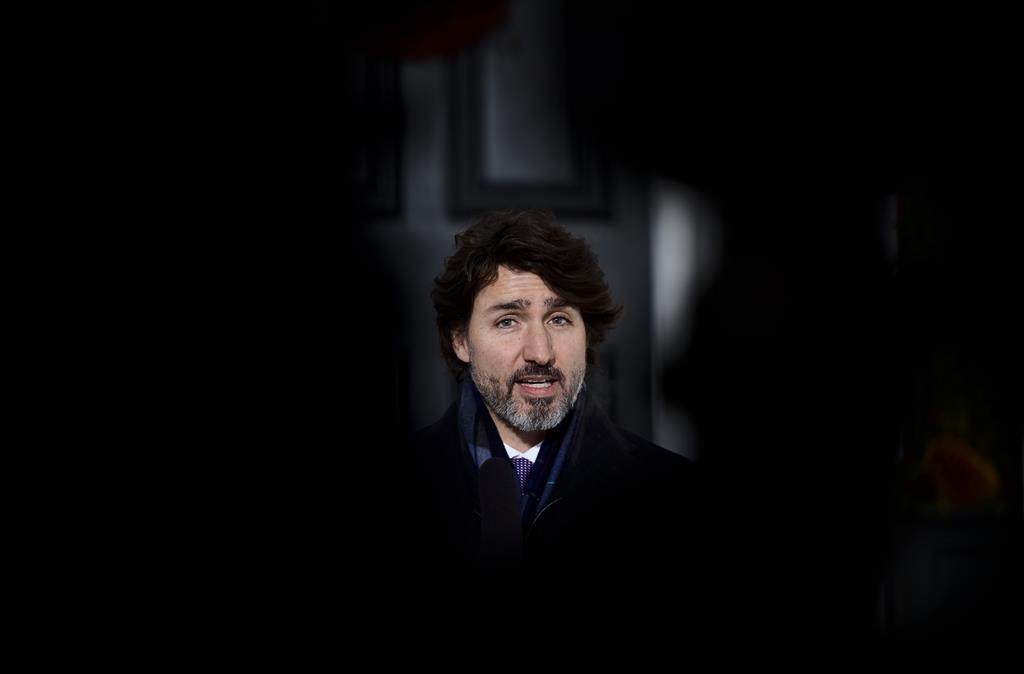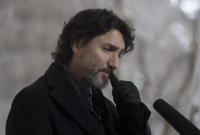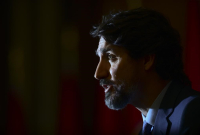Support strong Canadian climate journalism for 2025
Chief public health officer Dr. Theresa Tam says Canada is in "a very delicate period" as case counts for fast-spreading COVID-19 variants tick upward across the country, even while overall numbers of new coronavirus cases fall.
At least 148 cases of the variants that first emerged in the United Kingdom (known scientifically as B.1.1.7) and South Africa (known as B.1.351) have been confirmed across the country, Tam said Tuesday.
Health authorities in Ontario, Alberta and British Columbia have identified both mutations, with 135 of the B.1.1.7 strain and 13 of the B.1.351 strain reported from coast to coast.
New Brunswick and Saskatchewan also announced Tuesday variants there have been identified for the first time.
The four cases of the B.1.351 variant that were confirmed in B.C., one case reported in Ontario's Peel Region and eight in Alberta have no known link to international travel, raising fears of community spread.
“I think there are definitely signs that the variants are at least transmitted to a certain extent in communities — and we probably are not detecting them all," Tam said.
"This is the initial signal that we need to be very vigilant and very cautious about relaxation of those public health measures."
Canada needs to ramp up testing for variants through the labour-intensive process of whole-genome sequencing, though the country compares well against most others, Tam said.
"Without escalating the capacity for the sequencing to a greater extent, you won’t know if you have the variant."
Health officials sequence between five and 10 per cent of positive COVID-19 samples across Canada, said Natalie Prystajecky, head of the environmental microbiology program at the B.C. Centre for Disease Control's public health lab and a member of the Canadian COVID-19 Genomics Network.
Maintaining sufficient public health restrictions to limit viral spread, regardless of the variant, is even more critical than sequencing, added Dr. Andrew Morris, a professor in the department of medicine at the University of Toronto who studies infectious diseases.
Public officials need to "double down" on their response to the pandemic and "not be lulled" into a belief that declining numbers mean safeguards can be drastically loosened, he said.
"That’s my biggest fear. And we’ve already heard the premiers of Alberta and Quebec making strong moves to open up their economy," he said, adding that some easing could be reasonable.
Alberta Premier Jason Kenney announced Friday that one-on-one training in gyms can reopen and restaurants can resume in-person dining starting Feb. 8.
In Quebec City, Premier Francois Legault said Tuesday that starting next week stores, salons and museums can reopen. He credited a steady drop in infections and hospitalizations for his decision.
But Legault said hospitals in big cities remain under too much pressure for him to lift more restrictions. A curfew from 8 p.m. to 5 a.m. remains in effect in Montreal and Quebec City.
Legault said that in six, less-populated regions of the province, the curfew's start will be delayed until 9:30 p.m. and restaurants, gyms and indoor sports facilities will be able to reopen Monday.
As the more contagious strains of COVID-19 take hold, Prime Minister Justin Trudeau said "rare exceptions" to new travel restrictions will be made on compassionate grounds, but tough rules must be implemented in the next few weeks.
"Since the beginning of this pandemic there have been stories of funerals that haven’t been able to be held, weddings had to (be) put off or done by Zoom, families not being able to get together," Trudeau said at a press conference.
"But at the same time our responsibility is to make sure we’re keeping Canadians as safe as possible. These new variants out there are of real concern."
Trudeau announced last week that passengers returning from abroad will have to quarantine at hotels for up to three days after taking PCR tests upon arrival, but no date has been set for when this will take effect.
More details are expected as soon as Thursday.
The move is one of several measures meant to choke off entry of the virus into Canada, particularly its mutations.
Not everyone is delighted with Canada's new requirement to self-isolate in a hotel, which costs upwards of $2,000 at the traveller's expense.
Kelly Ranta, a Canadian who teaches kindergarten in South Korea, is planning to return home after her contract ends at the end of February. She's been abroad for four years.
"I think that if Canadians can prove they did not depart Canada during the travel advisory and recommendations period, they should be exempt from this new requirement," she said in an email.
The Public Health Agency of Canada said foreigners can still apply to enter the country for non-essential reasons that include supporting a critically ill person, attending a funeral or being with a loved one who is dying.
Total daily case counts of COVID-19 have been falling for several weeks.
Over the past seven days, an average of 4,368 new cases have been reported daily across the country, a nearly 50 per cent drop from three weeks ago, Tam said.
Hospitalizations are also on the decline, falling 12 per cent over the past week to fewer than 3,900 patients in care. Fatal cases have fallen by 20 per cent to 128 deaths per day on average.
The federal public health agency said that as of Monday evening, 783,589 Canadians had contracted COVID-19 since the pandemic began in Canada, and 20,136 had died.
This report by The Canadian Press was first published Feb. 2, 2021.
— With files from Jacob Serebrin





Comments